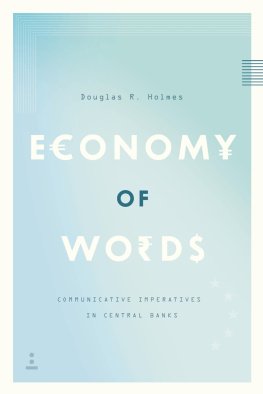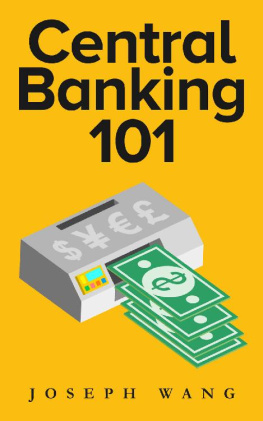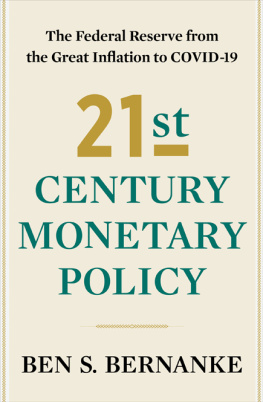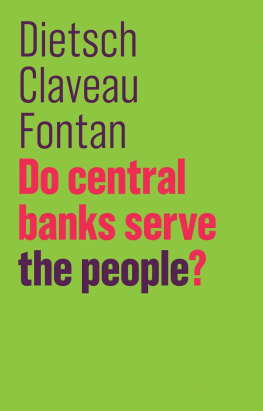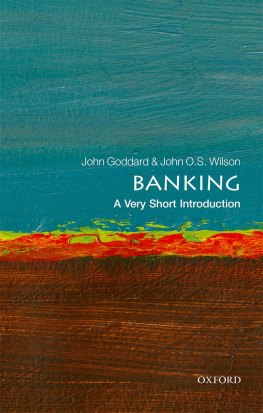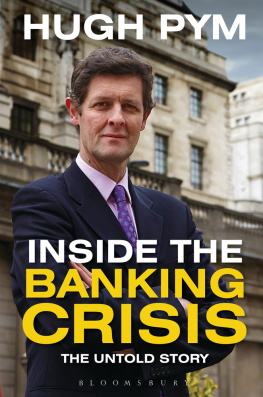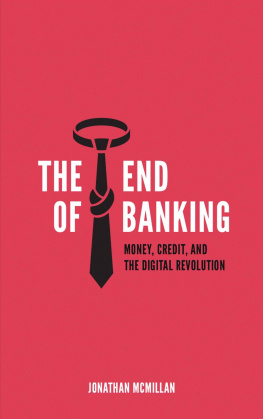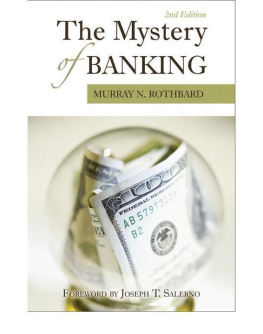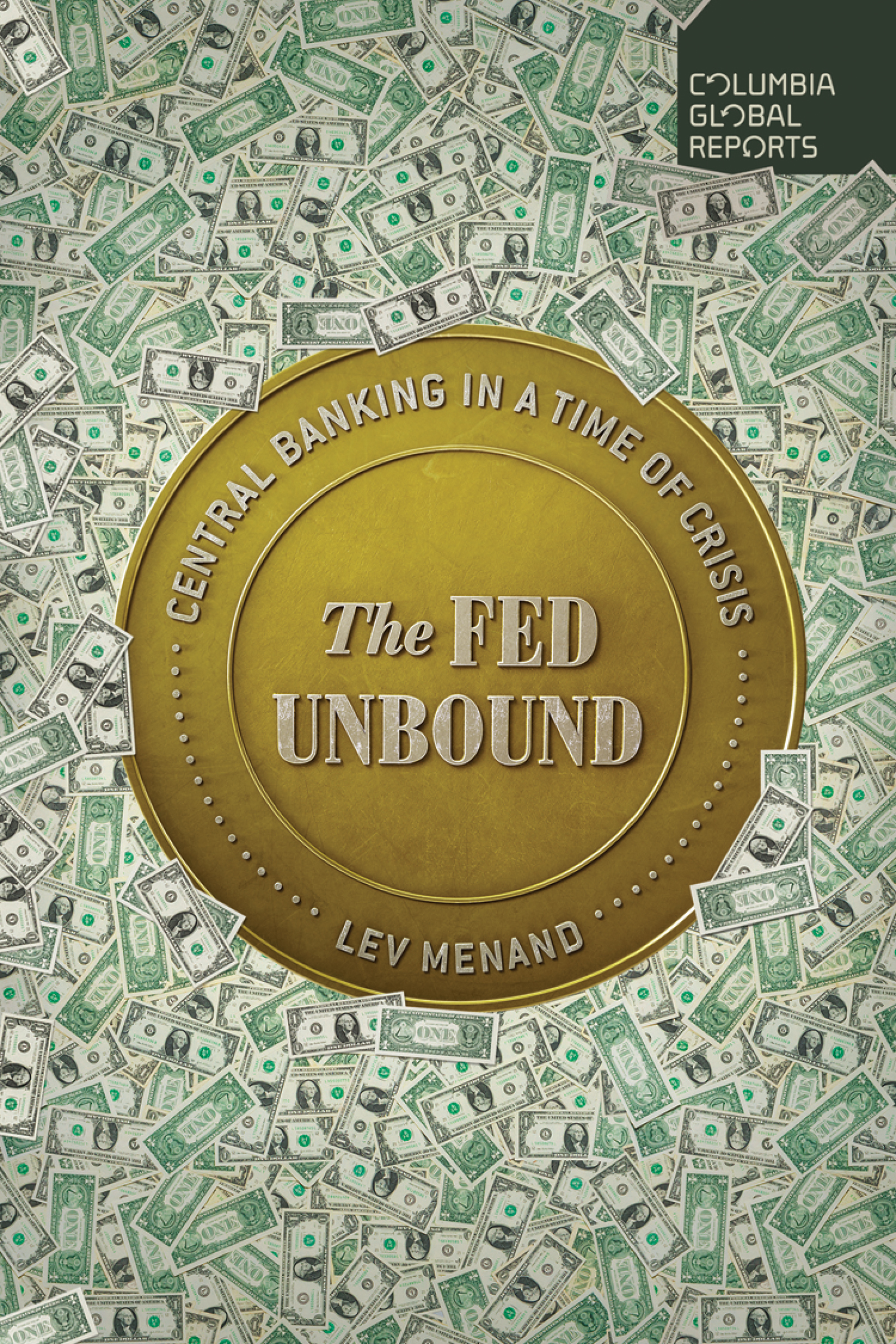Contents
List of Figures
List of Tables
Guide
Pagebreaks of the print version
PRAISE FOR The Fed Unbound
A fascinating and deep analysis of what has gone wrong with the American financial system. Lev Menand peels back the layers of mythology and hagiography surrounding the Federal Reserve to reveal just another government agency that fell in love with deregulation and now struggles with the consequences. The rise and rise of the repo market is central to how a stable and well-functioning financial system became so precarious. This is a brilliant fresh perspective on the Federal Reserve. Lev Menand is the most important new voice on central banking and finance today.
SIMON JOHNSON, professor at MIT Sloan and coauthor of
13 Bankers: The Wall Street Takeover and the Next Financial MeltdownNo American institution is more important, or more opaque to the outsider, than the Fed. Now, Lev Menand has somehow, magically, made its functioning, its history, its limitations, and its possible futures completely lucid, even for the nonmathematically inclined, and, along the way, managed to sound several alarms about the risks even the most well-meaning opaque institution presents to democracy.
ADAM GOPNIK, author of
A Thousand Small Sanities: The Moral Adventure of LiberalismBorn out of the need to govern the private money supply in a democracy, the Federal Reserve System manages a marriage between the state and the banks it is designed to regulate. As Menand shows, neither partner has been able to effectively contain the other. The outcome of this quixotic dance (Mehrling) is The Fed Unbound. A crucial read for anybody interested in the structural causes of todays monetary policy.
KATHARINA PISTOR, professor at Columbia Law School and author of
The Code Of Capital: How Law Creates Wealth and InequalityOver the past century, the Federal Reserve has grown massively in power, size, and influence. Yet the reasons for this evolution, and the myriad consequences that flow from it, have often remained shrouded from view. In The Fed Unbound, Menand provides a provocative and fresh account of the Feds rise to one of the most important institutions of our time. The book is a must-read for anyone interested in how the government or financial markets actually work.
KATHRYN JUDGE, professor at Columbia Law School and author of
Direct: The Rise of the Middleman Economy and the Power of Going to the SourceLev Menand explains that shadow banking and some newer innovations should be treated as within the private part of the monetary system, while the Fed should not be treated as an all-purpose substitute for the elected Congress. These profound propositions need urgent attention given that US world leadership depends on the effectiveness, integrity, and legitimacy of the Fed. Read this book.
PAUL TUCKER, author of
Unelected Power: The Quest for Legitimacy in Central Banking and the Regulatory StateThe Fed Unbound is a wonderfully lucid and provocative account of the Feds ever-expanding role in the US and global economies. Everyone who reads Menands account will rethink their understanding of the Feds place in the US economy and in the government. This book will be a landmark in the growing field of law and macroeconomics.
YAIR LISTOKIN, professor at Yale Law School and author of
Law and Macroeconomics: Legal Remedies to RecessionsMenands incisive analysis of the Feds authorities could not be timelier. The Fed Unbound demonstrates how our chronic dependency on the central banking systemand thus, private bankshas failed to benefit the broader public, even in times of crises. In a rare feat, Menands work not only interrogates the Feds power on a technical level but points toward the reconstruction of power that should not be.
RAL CARRILLO, deputy director, Law & Political Economy Project
The Fed Unbound
Central Banking in a Time of Crisis
Lev Menand
COLUMBIA GLOBAL REPORTS NEW YORK

The Fed Unbound
Central Banking in a Time of Crisis
Copyright 2022 by Lev Menand
All rights reserved
Published by Columbia Global Reports
91 Claremont Avenue, Suite 515
New York, NY 10027
globalreports.columbia.edu
facebook.com/columbiaglobalreports
@columbiaGR
Library of Congress Cataloging-in-Publication Data
Names: Menand, Lev, author.
Title: The fed unbound: central banking in a time of crisis / by Lev Menand.
Description: New York, NY: Columbia Global Reports, [2022] | Includes bibliographical references.
Identifiers: LCCN 2021059231 (print) | LCCN 2021059232 (ebook) | ISBN 9781735913704 (paperback) | ISBN 9781735913711 (ebook)
Subjects: LCSH: Board of Governors of the Federal Reserve System (U.S.) | Federal Reserve banks--United States. | United States--Economic policy--21st century. | COVID-19 Pandemic, 2020Economic aspects--United States.
Classification: LCC HG2565 .M46 2022 (print) | LCC HG2565 (ebook) | DDC 332.1/10973--dc23/eng/20220107
LC record available at https://lccn.loc.gov/2021059231
LC ebook record available at https://lccn.loc.gov/2021059232
Book design by Strick&Williams
Map design by Jeffrey L. Ward
Author photograph by Emily Menand
Printed in the United States of America
For Emily, with unbounded love and affection
CONTENTS
Preface
During the summer of 2007, the US financial system began to break down. At first, the parts that gave out were minor and unimportant. In July, two obscure hedge funds run by the Wall Street broker dealer Bear Stearns collapsed. They lost nearly all of their investors money. In August, the French financial conglomerate BNP Paribas blocked withdrawals from three of its investment vehicles due to the complete evaporation of liquidity in certain segments of the US mortgage market. Policymakers on both sides of the Atlantic were stunned. Six months later, Bear Stearns itself was on the verge of collapse. Within a year, more and bigger pieces of the financial system had stopped working, a panic had broken out, and dozens of large companies were hurtling towards the abyss.
A climax arrived on September 15, 2008. Lehman Brothers, one of the most profitable firms on Wall Street, filed for bankruptcy. In its court filing, Lehman cited $613 billion of liabilities, by far the most of any bankrupt company in history. Given the role that Lehman played in the US economycirculating money between households and businesses like a heart pumps blood around a bodya wave of similar failures would almost certainly have meant widespread business closures, job losses, and another Great Depression or worse.
That we did not experience such a collapse is due in large part to the efforts of a single institution, the Federal Reserve. The Fed, as it is usually known, scrambled frantically in 2008 to keep the gears turning and the blood flowing. It did its traditional work of lowering overnight interest rates, bringing them down to near zero. It also took a series of extraordinary actions, crossing red lines, stretching its legal authorities, and using its balance sheet to lend to financial enterprises of all sorts. Ultimately, with support from Congress and the Treasury Department, it staved off disaster.


